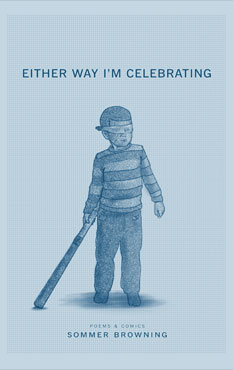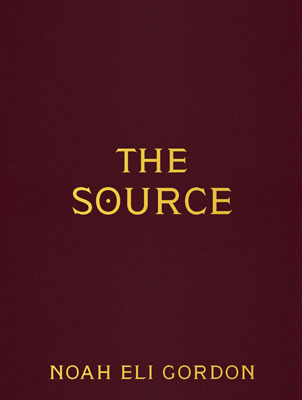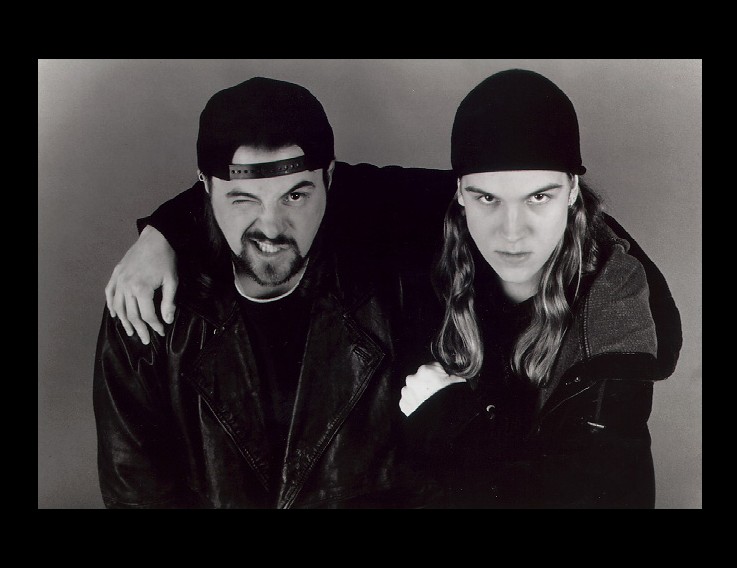Fear and Bravery of Pseudonyms
 At the AWP bookfair, Michael Kimball showed me a copy of this pretty little book, Normally Special, by a writer called xTx. I asked Michael something like, “what’s the deal with the name?” He said she was a writer who publishes stuff under her real name, but also uses this pseudonym when she writes stuff she doesn’t want her family to read or kids to read. I asked Michael if anyone knew who the writer was and he said maybe Roxane Gay, since she had published the book, but maybe nobody else knew. “I don’t think I’d want to read any of that other stuff anyway,” he said.
At the AWP bookfair, Michael Kimball showed me a copy of this pretty little book, Normally Special, by a writer called xTx. I asked Michael something like, “what’s the deal with the name?” He said she was a writer who publishes stuff under her real name, but also uses this pseudonym when she writes stuff she doesn’t want her family to read or kids to read. I asked Michael if anyone knew who the writer was and he said maybe Roxane Gay, since she had published the book, but maybe nobody else knew. “I don’t think I’d want to read any of that other stuff anyway,” he said.
Tiny back story: When I was twelve or thirteen I learned how to code HTML so I could build websites. It was 1999 and compared to now, the internet was pretty barren place. I built a website for my church’s Youth Group because I was really into that kind of thing, a fan site for Sheryl Crow because I was really into her first two albums, and I published my own stories on a Geocities page because I wanted someone to read things I’d written, just so long as I didn’t have to answer to it.
Another story: A few years ago, a mentor of mine from New Orleans came to visit New York and we had coffee. He was the one who got me to move to New York in the first place, the one who told me to go to grad school, the one who made me excited about creative nonfiction. He published a very autobiographical novel about his childhood in Louisiana and told me his mother had a hard time with the way the mother character was represented in the book. Over our coffee, he asked me what I was working on and I said, somewhat embarrassed, that I was working on a memoir. He asked me if my family knew and I said not really and he said, “Don’t talk to them about it until it’s done. They’ll change your memories, they’ll change your story without even trying.” (A loose quote, of course, but you get the picture.) Most importantly, he told me, You can’t write a good story if you’re worried about what someone is going to think about it, if you’re worried about hurting someone’s feelings. READ MORE >
Michael Kimball’s Us [Tyrant Books, 2011]
Michael Kimball’s truly crushing second novel, released in the UK in 2005, will finally see its U.S. release on May 10 of this year from Tyrant Books. Preorders have begun. Below, a trailer for the book based on a single sentence, created by Luca Dipierro.
Gordon Lish Knopf Bibliography [1977-1995]
Gordon Lish began working as an editor at Alfred A. Knopf in 1977 after leaving his role as editor at Esquire Magazine. He continued work with Knopf for 18 years until parting ways in 1995, having assembled what is arguably one of the greatest editorial runs in publishing.
The listing below is a catalog of the titles and authors Lish published during this time. This is surely not a complete list, but is at least a decent stab at the continuum; comments are welcome with any suggestions as to the extant.
Most of these titles, if not having been reprinted by other houses, are available used on Amazon or in places like Abe Books.
1976 Don DeLillo, Ratner’s Star
Cynthia Ozick, Bloodshed and Three Novellas
1977 Don DeLillo, The Players
1978 Stanley Crawford, Some Instructions to my Wife…
Don DeLillo, Running Dog
Barry Hannah, Airships
1979 Mary Robison, Days
An open letter to Kevin Smith (aka Silent Bob) about silence and writing-as-shitting
Dear Kevin Smith,
You have a fucking radio show? That’s kind of hilarious because you were always the silent one. You were Silent Bob. You went from being pure body to pure voice. Why’d you do it, man? There was something philosophical about your silence, they way you were so expressive without saying anything. We all liked to imagine what you were thinking, how you were perceiving everything that was going on around you. There was a profound quality to your sparse interjections (because you never spoke, because of the scarcity of your words). The law of economics says that when demand exceeds supply, value increases. Maybe I should shut up. Maybe I should retreat into silence like you once did. Maybe then—only then—will people give a shit about any of this. Any of these words.
When you did speak, we felt lucky to be graced by your wise words. Because you never spoke, we felt like you were enlightened, like you were beyond language, like language was something the petty people did, and you did not need it. You were above all that, the way spiritual gurus are above food, the way they no longer need to satiate those earthly desires. You didn’t need to feed the part of the body that longs for recognition. You were a watcher, an observer. Everyone around you was always blabbering on and on, but you didn’t feel the need to fill up space in the same way. You know, most people feel anxious about silence. It’s the hardest thing, to live in silence. You can’t just “be” next to someone. It makes you totally nuts to feel like you don’t know what they’re thinking. Maybe their silence means hatred. Maybe I’m fucking boring. So we talk on and on because we are afraid, because we need to know where the other person is at, because silence can mean anything and we need our interactions to be anchored in certainty.
It is Thursday Morning: Go Right Ahead
Do you have a respectable suit you could trust me with?
Don’t be too harsh to these poems until they’re typed.
I am sorry Yeats is dead.
A dog among the fairies.
I cycled home in the dark without a lamp of any kind.
Fourteen pints is par.
I went on all over the States, ranting poems to enthusiastic audiences that, the week before, had been equally enthusiastic about lectures on Railway Development or the Modern Turkish Essay.
Our discreditable secret is that we don’t know anything at all.
Then hang a ram rose over the rags.
I am not a country man. I stand for the evening pub.
WOWELS.
Or a lotion of invisibility.
Somebody’s boring me. I think it’s me.
Koreanish & Some Notes About Reading a Blog As Though It Were A Book Whose Ending Hasn’t Yet Been Written

Koreanish is a blog operated by the novelist Alexander Chee, author of Edinburgh and the forthcoming The Queen of the Night. Chee recently offered a four-part series titled “100 Things About a Novel.” It begins like this:
1. Sometimes music is needed.
2. Sometimes silence.
3. This is probably because a novel is a piece of music, like all written things, the language demanding you make a sound as you read it.
Doug Hream Blunt on tv
I don’t know what’s wrong with this guy.
Interview Roundup, Part Ten: Eugenides, Jelinek, Adichie, Solzhenitsyn, Carson
 “That’s what gave me such trouble and why it took me so long to write the damn book at first. It took me two years to get this first-person omniscient narrator. I was sure I needed a first-person narrator for many reasons. I wanted the story of Calliope’s transformation to be intimate. I also wanted to avoid — and this is a very practical writerly point — to avoid the pronominal problem with he/she that we’re having in this interview. I wanted it to be ‘I.’ And the point is also that we’re all an I before we’re a he or a she. So it seemed important to have this ‘I,’ but in order to tell the story of the grandparents and the parents, if I remain in a first-person narrative voice, I can’t go into their minds and tell you what they’re feeling. It becomes very dry and voyeuristic. It took me a long time to figure out how to have a first-person that could also switch into the third-person. I had to basically give myself permission to do that, and I had a lot of scruples against doing it for the first couple of years. So I wrote the story many different ways — sometimes all third-person, sometimes all first-person. I knocked my head until I finally realized I could have the narrator do both things and give the sense to the reader that Cal, telling the story years later, is possibly inventing things and maybe knows things that he can’t but that’s all right. I worried that the reader would resist certain things that Cal knows, but I’ve found that actually readers don’t bother themselves with the details as much as I do. In general, readers don’t worry about things like, how would he know this about his grandmother?” – Jeffrey Eugenides, in Salon
“That’s what gave me such trouble and why it took me so long to write the damn book at first. It took me two years to get this first-person omniscient narrator. I was sure I needed a first-person narrator for many reasons. I wanted the story of Calliope’s transformation to be intimate. I also wanted to avoid — and this is a very practical writerly point — to avoid the pronominal problem with he/she that we’re having in this interview. I wanted it to be ‘I.’ And the point is also that we’re all an I before we’re a he or a she. So it seemed important to have this ‘I,’ but in order to tell the story of the grandparents and the parents, if I remain in a first-person narrative voice, I can’t go into their minds and tell you what they’re feeling. It becomes very dry and voyeuristic. It took me a long time to figure out how to have a first-person that could also switch into the third-person. I had to basically give myself permission to do that, and I had a lot of scruples against doing it for the first couple of years. So I wrote the story many different ways — sometimes all third-person, sometimes all first-person. I knocked my head until I finally realized I could have the narrator do both things and give the sense to the reader that Cal, telling the story years later, is possibly inventing things and maybe knows things that he can’t but that’s all right. I worried that the reader would resist certain things that Cal knows, but I’ve found that actually readers don’t bother themselves with the details as much as I do. In general, readers don’t worry about things like, how would he know this about his grandmother?” – Jeffrey Eugenides, in Salon
 “The novel is the opposite of pornography. Pornography suggests desire everywhere and at every moment. The novel proves that this does not exist, that it is a construct meant to keep women willing, because they are usually pornographic objects anyway, while men look at them, and can almost penetrate their bodies with their gaze. But I am used to being misunderstood. I am even blamed for what I attempt to analyze in my writing. As so often happens, the messenger is attacked, and not what she expresses. No one is interested in that.” – Elfriede Jelinek at Serpent’s Tale
“The novel is the opposite of pornography. Pornography suggests desire everywhere and at every moment. The novel proves that this does not exist, that it is a construct meant to keep women willing, because they are usually pornographic objects anyway, while men look at them, and can almost penetrate their bodies with their gaze. But I am used to being misunderstood. I am even blamed for what I attempt to analyze in my writing. As so often happens, the messenger is attacked, and not what she expresses. No one is interested in that.” – Elfriede Jelinek at Serpent’s Tale
 “I’m not sure my writing in English is a choice. If a Nigerian Igbo like myself is educated exclusively in English, discouraged from speaking Igbo in a school in which Igbo was just one more subject of study (and one that was considered ‘uncool’ by students and did not receive much support from the administration), then perhaps writing in English is not a choice, because the idea of choice assumes other equal alternatives.” – Chimimanda Ngozi Adichie in WOCALA
“I’m not sure my writing in English is a choice. If a Nigerian Igbo like myself is educated exclusively in English, discouraged from speaking Igbo in a school in which Igbo was just one more subject of study (and one that was considered ‘uncool’ by students and did not receive much support from the administration), then perhaps writing in English is not a choice, because the idea of choice assumes other equal alternatives.” – Chimimanda Ngozi Adichie in WOCALA
 “Periods of rapid and fundamental change were never favourable for literature. Significant works, have nearly always and everywhere been created in periods of stability, be it good or bad. Modern Russian literature is no exception. The educated reader today is much more interested in non-fiction. However, I believe that justice and conscience will not be cast to the four winds, but will remain in the foundations of Russian literature, so that it may be of service in brightening our spirit and enhancing our comprehension.” – Aleksandr Solzhenitsyn in The Independent
“Periods of rapid and fundamental change were never favourable for literature. Significant works, have nearly always and everywhere been created in periods of stability, be it good or bad. Modern Russian literature is no exception. The educated reader today is much more interested in non-fiction. However, I believe that justice and conscience will not be cast to the four winds, but will remain in the foundations of Russian literature, so that it may be of service in brightening our spirit and enhancing our comprehension.” – Aleksandr Solzhenitsyn in The Independent
 “In surfaces, perfection is less interesting. For instance, a page with a poem on it is less attractive than a page with a poem on it and some tea stains. Because the tea stains add a bit of history. It’s a historical attitude. After all, texts of ancient Greeks come to us in wreckage and I admire that, the combination of layers of time that you have when looking at a papyrus that was produced in the third century BC and then copied and then wrapped around a mummy for a couple hundred years and then discovered and put in a museum and pieced together by nine different gentlemen and put back in the museum and brought out again and photographed and put in a book. All those layers add up to more and more life. You can approximate that in your own life. Stains on clothing.” – Anne Carson, in the Paris Review
“In surfaces, perfection is less interesting. For instance, a page with a poem on it is less attractive than a page with a poem on it and some tea stains. Because the tea stains add a bit of history. It’s a historical attitude. After all, texts of ancient Greeks come to us in wreckage and I admire that, the combination of layers of time that you have when looking at a papyrus that was produced in the third century BC and then copied and then wrapped around a mummy for a couple hundred years and then discovered and put in a museum and pieced together by nine different gentlemen and put back in the museum and brought out again and photographed and put in a book. All those layers add up to more and more life. You can approximate that in your own life. Stains on clothing.” – Anne Carson, in the Paris Review
Live Giants 11: Sommer Browning & Noah Eli Gordon
You missed the live reading but you can still check out Sommer & Noah’s new books, Either Way I’m Celebrating and The Source, available from the publishers at the according links.


RIP Nate Dogg (1969-2011)
Damn. Eternal flute solo for the boss.


